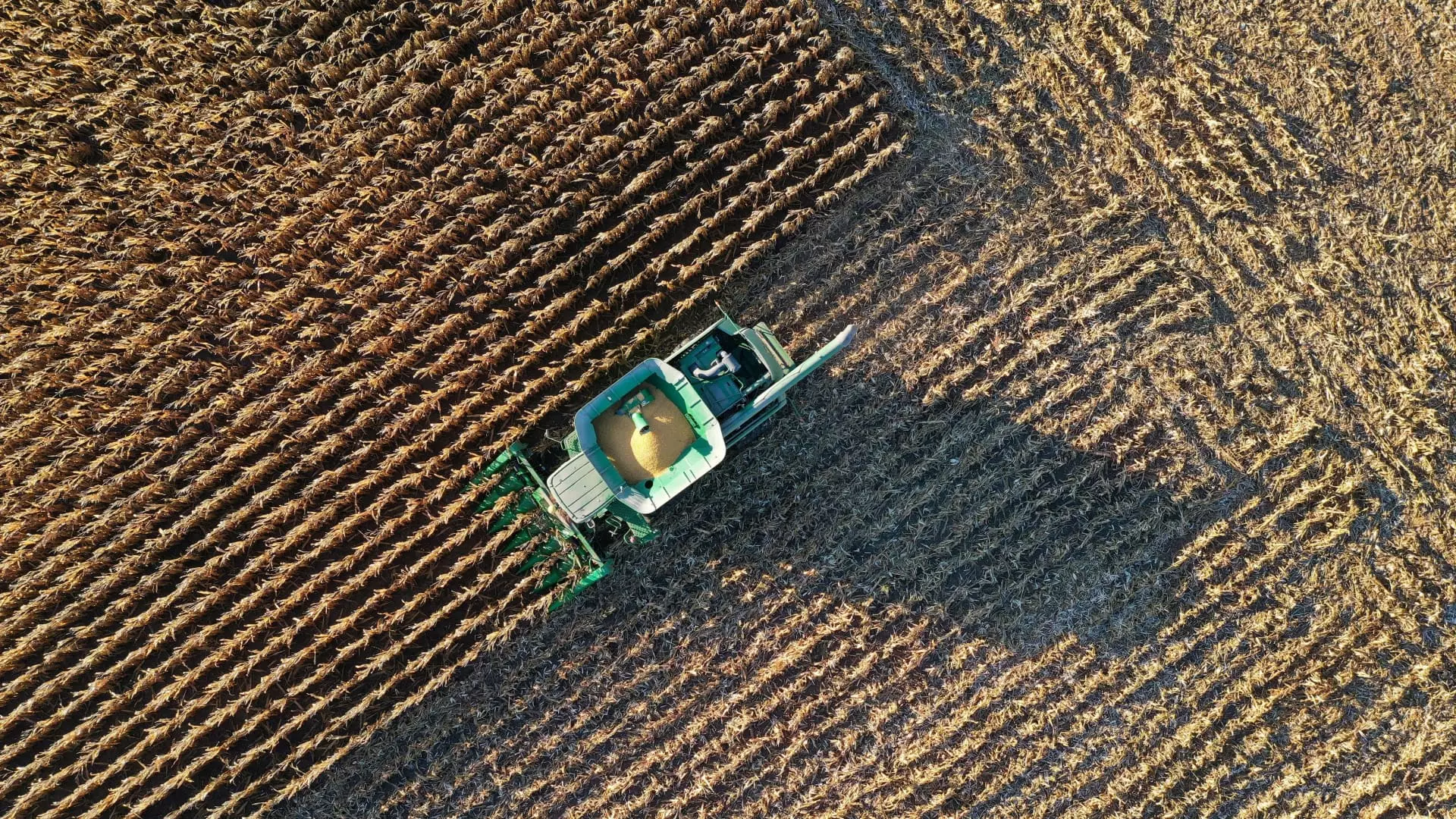The agricultural sector, which serves as the backbone of the American economy, is currently experiencing a significant downturn in farmer sentiment, the lowest seen in approximately ten years. This prevailing negative outlook comes at a crucial time as the U.S. approaches a tightly contested presidential election that is raising stakes for stakeholders in the agricultural community. Recent data from the Purdue University/CME Group Ag Economy Barometer has quantified this discontent, indicating a pervasive sense of unease amidst farmers regarding anticipated economic conditions over the near future.
As of September, 78% of farmers surveyed expressed concerns about the adverse effects that upcoming government policies could impose after the election. The barometer’s findings highlight a steep decline in the farmers’ financial expectations index, which plummeted by 18 points to a mere 68. This statistic illustrates a worrying trend: it’s the third consecutive month farmers have reported declining expectations regarding their financial viability, a stark contrast to the relative confidence they felt just a year ago.
In addition to worries about financial expectations, for the first time since 2020, a majority of farmers now anticipate a downturn in farmland values. James Mintert, the director at Purdue’s Center for Commercial Agriculture, suggests that while land values may stabilize in the short term, they could face further declines if commodity prices continue to drop due to oversupply. This ominous forecast intensifies the feeling of uncertainty among farmers, who are struggling with the dual challenges of fluctuating market conditions and external economic pressures.
Political Anxiety: The Impacts of Upcoming Elections
The upcoming presidential election adds another layer of complexity to the already challenging environment for farmers. The political landscape, particularly the rivalry between former President Donald Trump and Vice President Kamala Harris, creates instability regarding potential regulatory changes and taxation policies that could directly affect agricultural operations. As noted by Michael Langemeier, an associate director at Purdue, the expiration of tax exemptions established under the prior administration adds to fears about the estate tax, which many farmers see as a critical issue for their inheritances and long-term business viability.
Moreover, the stasis over the renewal of the Agriculture Improvement Act of 2018 is concerning farmers, who rely heavily on federal assistance programs for crop insurance, commodity support, and more. As these programs remain unconfirmed, the specter of possible cuts creates an atmosphere of apprehension that further deteriorates farmers’ confidence in their financial futures.
While farmers express anxiety over their finances and incoming regulations, it’s crucial to analyze what this sentiment indicates about the broader market dynamics at play. The feelings of insecurity are amplified by rising input costs juxtaposed against low commodity prices. The mismatch between supply and demand trends leads to heightened vulnerability within the market. Additionally, the fear of tax changes and regulatory comprises pushes farmers towards a more defensive stance regarding investment and future planning.
Kristen Owen, an analyst focused on sustainable growth, underscores that until a new farm bill is implemented—projected to take place in 2025—uncertainties regarding tax credits for the agricultural sector will persist. Such uncertainties can stall investment in farming infrastructure and technology, which are essential for enhancing productivity and sustainability.
Investment Perspectives: Stocks to Monitor
Despite the prevailing pessimism among farmers, some agricultural stocks seem to present potential growth opportunities, illustrating a dissonance between farmer sentiment and market performance. For instance, industrial giants like Caterpillar and Deere could benefit significantly from a Republican victory. Both companies are aligned with tax policies that promote accelerated depreciation and lower corporate tax rates, essential for manufacturing growth.
Caterpillar, often seen as a bellwether for industrial activity, has celebrated a remarkable increase in its stock price this year—over 30% year-to-date—further emphasizing that investor sentiment can at times diverge from the concerns of those in the actual agricultural sector.
Interestingly, under a hypothetical Democratic administration led by Harris, renewable energy companies such as Green Plains may experience uplifts in stock performance due to anticipated investments that align with clean energy initiatives.
The current sentiment among farmers reflects a broader tension marked by economic difficulties, political uncertainties, and environmental concerns that call into question the future of American agriculture. The intertwining nature of these factors creates an unpredictable landscape as the country heads into a consequential election cycle. While specific stocks may still reflect growth potential, the fears and uncertainties faced by farmers warrant careful consideration as they navigate the near term. The decisions they make today, in response to the shifting economic realities and political dynamics, will resonate for years to come.

